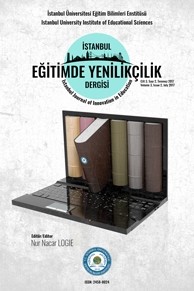Cultural e-Learning Through Erasmus Experience Management
Cultural e-Learning Through Erasmus Experience Management
The practice of cultural orientation through e-learning is one of the achieved success of our technology use, as culture is said to be a form or stage of civilization of a certain nation or period, this might imply that we are the culture and learning the culture is learning ourselves. This paper is trying to bring close to our vision the need for the cultural experience management system, through which people that have the knowledge of another culture can share and document their experiences of that culture. A cultural knowledge system can build a vocal community with human understanding that will help in, use of cultural signs, selection of words for communication, and guide us in our physical appearance to a certain community, with respect and preservation of human integrity from each society. The system will assist in bringing up a civilized young generation that will be good ambassadors in any geographic location they found themselves. Based on this, we may say, a student that goes to Erasmus program can have a lot to share regarding to a culture in a different perspective that is likely not to be the same with a person who learn about the culture through papers or by attending classes. Culture is taught and learned and shared, these can be better accomplished through the management of such experience.
Keywords:
Culture, e-Learning Erasmus, experience management, Erasmus students,
___
- Olaniran, B. A. (2009). Discerning culture in e-Learning and in the global workplaces. Knowledge Management & E-Learning: An International Journal (KM&EL), 1(3).
- Al-Hunaiyyan, A., & Al-Huwail N., & Al-Sharhan, S. (2008). Blended e-Learning design: discussion of cultural issues. International Journal of Cyber Society and Education, 1(1), 17-32.
- Chen, S., & Hsu, C., & Caropreso, E. J. (2006). Cross-cultural collaborative online learning: When the West meets the East. International Journal of Technology in Teaching and Learning, 17-35.
- Belisle, C., (2008). E-Learning and intercultural dimensions of learning theories and teaching models. Nordic Journal of Digital Literacy.
- Reddy, S. G., & Srinivasu R., Rikkula R. S., & Rao, S. V. (2009). Management Information System to help managers for providing decision making in an organization. International Journal of Reviews in Computing E-ISSN, 2076-3336.
- Nowduri, S. (2010). Management Information Systems and Business Decision Making: Review, Analysis and Recommendations. Journal of Management and Marketing Research.
- Hoof, V. B., & Verbeeten, J. M. (2008). Wine Is for Drinking, Water Is for Washing: Student Opinions About International Exchange Programs. Journal of Studies in International Education.
- Robbins, K., & Orr, R. (2004). Outcome Assessment of a Short-Term U.S. Thailand Student Exchange Program. North American Colleges and Teachers of Agriculture (NACTA Journal).
- ISSN: 2458-8024
- Başlangıç: 2015
- Yayıncı: İstanbul Üniversitesi
Sayıdaki Diğer Makaleler
Student Oriented Bachelor Degree Engineering Studies
Romualdas KLIUKAS, Irina VINOGRADOVA, Dovilė ULINSKAITĖ, Vaidotas TRINKŪNAS
Assessment Approach with Mahara and Moodle in E-Learning
Özlem GÜZELYAZICI, Kemal GÜZELYAZICI, Kevser ŞAHİNBAŞ, Buket DÖNMEZ
Determine the Usage of Mobile Applications Among University Students
Visualization in Teaching Computer Science and Mathematics
Janka MAJHEROVÁ, Ján GUNČAGA, Hedviga PETRUŠKOVÁ
Cultural e-Learning Through Erasmus Experience Management
Bello MUAHAMMAD, Şebnem ZEREN, Sevinç GÜLSEÇEN
Observation of Young Age Individual’s Approach to a New Computer Fact
